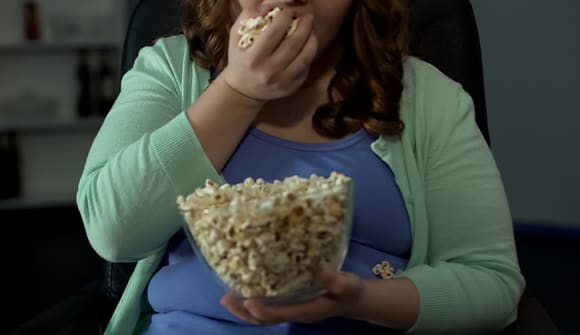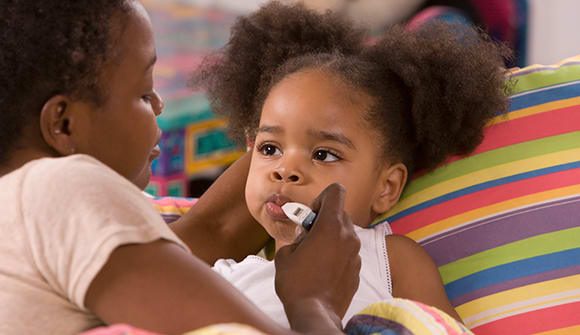Weight watch
Pediatric obesity rates have increased during the COVID-19 pandemic.
Article Date:

Parents have had to adjust in many ways throughout the COVID-19 pandemic. From job shifts to becoming homeschool teachers, it can feel overwhelming to keep up with all of the competing priorities. Unfortunately, the effects have created another epidemic of sorts: an increase in childhood obesity rates.
Most of us have heard about the “quarantine 15,” but what about 50? In children, nonetheless. Shawyntee Mayo, MD, pediatric preventive cardiologist with Wolfson Children’s Terry Heart Institute, said, “I have seen many patients throughout the pandemic who are overweight or obese. Most of my patients have gained weight. Some teenagers, for example, have gained over 50 pounds.”
Dr. Mayo explained there are many reasons behind this troubling trend, most stemming from extra time indoors due to home or virtual schooling. Specifically, lack of physical exercise, increased snacking and declining mental health may all be contributing factors.
Exercise ebbs
When distance learning replaced in-person education, children no longer had to walk around to change classes, go to the bathroom or make a trip to the cafeteria. Instead, they sat at their computers for 5-6 hours a day.
Additionally, sports were also placed on hold in a lot of areas due to social distancing guidelines.
Though traditional homeschooling typically involves scheduled outings or activities, COVID-19 forced a lot of families to quickly adapt to this model of education in what Dr. Mayo referred to as “crisis schooling.”
“Lots of parents who are not used to this didn’t recognize or have the tools to incorporate physical activity, which is typically a critical component of homeschooling,” she explained.
Dr. Mayo recommended parents start encouraging physical activity for their kids. She said, “Even if they aren’t getting back into organized sports, the American Heart Association recommends an hour of activity 5-6 days a week.” This can include:
- Taking a walk
- Riding a bike
- Going for a run
Snack surplus
Staying inside and being at home often lead to overeating, in kids as well as adults. When students were learning at home, snacks were more readily accessible and not limited to certain times of the day, as typically is the case at school. Eating all day leads to excessive calorie intake.
Dr. Mayo recommended eliminating juices, sodas, and processed, high-sugar and high-calorie foods. Additionally, parents should limit fast food to once a week. Instead, focus on ensuring children eat fruits, vegetables and whole grains.
Dr. Mayo also recommended finding non-food-centered activities to occupy children’s time.
“They should be encouraged to do things like go outside and play,” she said.
If parents find their children are struggling to fight the urge to eat, they may want to consult with a child psychologist.
Skewed mood
While attending school, kids are able to interact with other children. They also have to follow a routine in order to get to class and any extracurricular activities on time. When these factors are removed, it can contribute to low mood or even depression and anxiety.
“Mental health problems can contribute to overeating or stress eating,” Dr. Mayo explained. “I’ve seen families become crippled with their own stress from the pandemic and now their children are suffering. They may need a professional, such as a child or family psychologist, to help.”
If you feel that your child may be overweight, Wolfson Children’s Hospital is here to help. You can schedule an appointment by calling 202.4YOU (904.202.4968) or requesting an appointment here.



